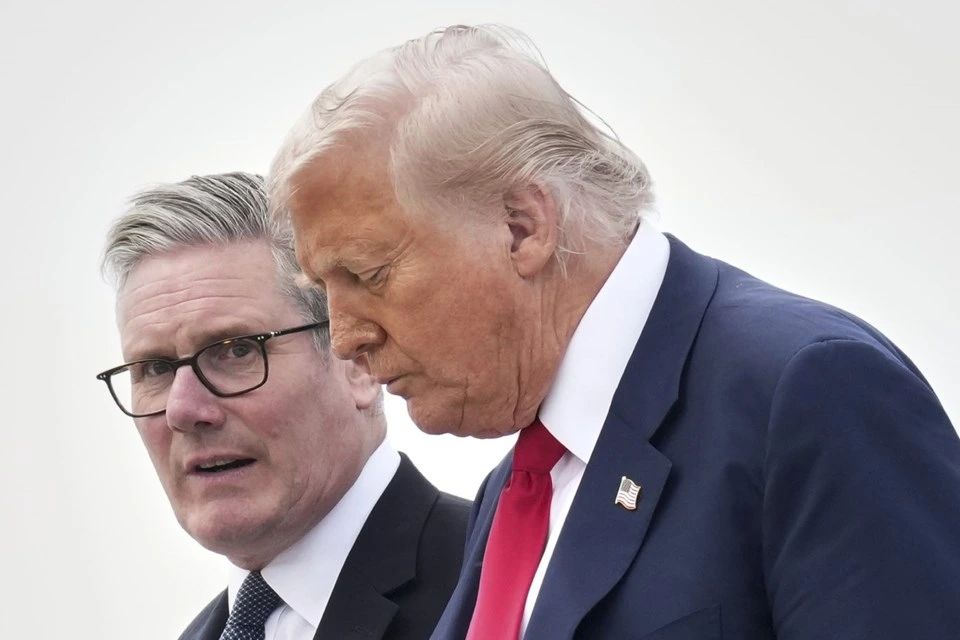Islamabad 29 July: U.S. President Donald Trump made headlines during a bilateral meeting with U.K. Prime Minister Keir Starmer at his Turnberry golf resort in Scotland, announcing a dramatic reduction in the timeline for Russia to agree to a ceasefire in its ongoing war with Ukraine.
Initially set at 50 days on July 14, Trump slashed the deadline to “10 or 12 days,” signaling his mounting exasperation with Russian President Vladimir Putin and the lack of progress toward peace.
“I’m going to make a new deadline of about 10 or 12 days from today,” Trump declared to reporters. “There’s no reason in waiting. I want to be generous, but we just don’t see any progress being made.” He expressed disappointment in Putin, stating, “I’m disappointed in President Putin, very disappointed in him,” and hinted at severe economic consequences, including 100% tariffs on Russian exports and secondary sanctions on countries purchasing Russian oil, if Moscow fails to comply by early August.
The announcement follows a turbulent period in U.S.-Russia relations. Earlier this year, Trump’s administration briefly froze military aid to Ukraine amid tense negotiations with Ukrainian President Volodymyr Zelenskyy, raising concerns among European allies about a potential tilt toward Moscow. However, recent weeks have seen a shift, with Trump approving new weapons shipments to Kyiv, including Patriot missile defense systems funded by NATO partners, and adopting tougher rhetoric against Putin. This change comes as Russian forces intensify attacks on Ukrainian cities, prompting Trump to reassess his approach.
Ukrainian officials welcomed the shortened deadline. Zelenskyy praised Trump’s “clear stance and expressed determination” on social media, emphasizing the need for stronger sanctions to curb Russian aggression. “Russia pays attention to sanctions, pays attention to such losses,” he said in his nightly address. Meanwhile, the Kremlin’s response was defiant. Former Russian President Dmitry Medvedev, a close Putin ally, called the new deadline an “ultimatum game” on X, warning that it could escalate tensions beyond the Russia-Ukraine conflict.
Critics, however, question the effectiveness of Trump’s strategy. Analysts note that Russia’s trade with the U.S. is minimal, rendering tariffs largely symbolic. Sanctions on major Russian oil buyers like China and India could prove challenging to enforce, given their economic ties with Washington. Moreover, Trump’s history of setting deadlines—such as those for TikTok divestment or earlier Ukraine talks—has drawn skepticism, as he often fails to follow through with promised actions.
The move has also sparked debate in Washington. Democratic Senator Jeanne Shaheen called the shorter deadline “a positive step, but long overdue,” urging bipartisan support for tougher sanctions. Conversely, some Republicans view Trump’s approach as a pragmatic push for peace, aligning with his campaign promise to end the conflict swiftly.
As the new deadline looms, the world watches to see whether Trump’s gamble will force Putin’s hand or further complicate an already intractable war. With Russian forces pressing their offensive and Ukraine’s defenses strained, the next two weeks could prove pivotal for the region’s future.









